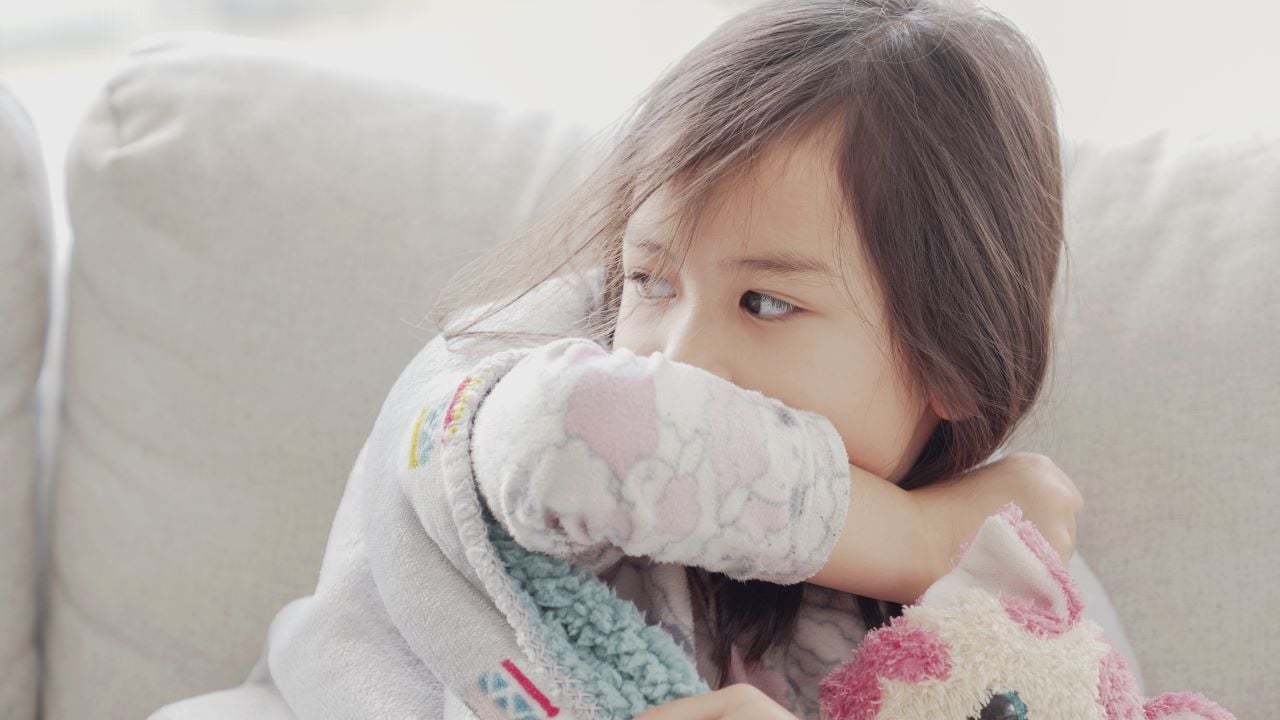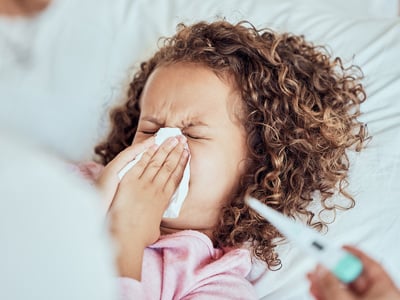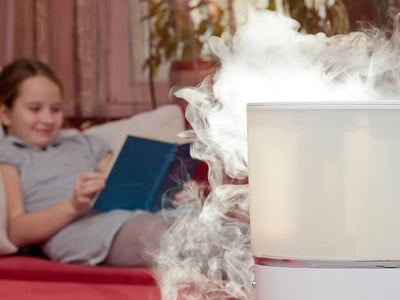- Doctors & Departments
-
Conditions & Advice
- Overview
- Conditions and Symptoms
- Symptom Checker
- Parent Resources
- The Connection Journey
- Calm A Crying Baby
- Sports Articles
- Dosage Tables
- Baby Guide
-
Your Visit
- Overview
- Prepare for Your Visit
- Your Overnight Stay
- Send a Cheer Card
- Family and Patient Resources
- Patient Cost Estimate
- Insurance and Financial Resources
- Online Bill Pay
- Medical Records
- Policies and Procedures
- We Ask Because We Care
Click to find the locations nearest youFind locations by region
See all locations -
Community
- Overview
- Addressing the Youth Mental Health Crisis
- Calendar of Events
- Child Health Advocacy
- Community Health
- Community Partners
- Corporate Relations
- Global Health
- Patient Advocacy
- Patient Stories
- Pediatric Affiliations
- Support Children’s Colorado
- Specialty Outreach Clinics
Your Support Matters
Upcoming Events
Mental Health Town Hall
Tuesday, April 23, 2024Join Children’s Hospital Colorado pediatric experts for a virtual...
-
Research & Innovation
- Overview
- Clinical Trials
- Q: Pediatric Health Advances
- Discoveries and Milestones
- Training and Internships
- Academic Affiliation
- Investigator Resources
- Funding Opportunities
- Center For Innovation
- Support Our Research
- Research Areas

It starts with a Q:
For the latest cutting-edge research, innovative collaborations and remarkable discoveries in child health, read stories from across all our areas of study in Q: Advances and Answers in Pediatric Health.


Types of Coughs in Kids

Coughs are the body’s built-in mechanism for protecting the airways and fighting infection. They signal your child is sick, but also are a sign they’re getting better. Still, coughs can be annoying, and occasionally they can be a sign of more concerning problems. Our experts can help you distinguish between the different types of coughs, learn to ease your child’s symptoms with home remedies and know when to see a doctor.
Dry vs. wet coughs in kids
Children’s Hospital Colorado pediatric pulmonologist Mark Brown, MD, says that coughs come in two classes: wet and dry. Dry coughs are typically the result of irritation in the upper airways — the sinuses, throat and vocal cords — though a cough with asthma can start out dry, as well. Wet coughs are more likely to be a response to irritation in the lower airways, which can result in mucus.
Both types of coughs tend to worsen at bedtime, when kids go from upright to lying down, and mucus and saliva resettle in the airways. Coughs are more present in the winter, when viruses are making the rounds, but there are also plenty of nonseasonal reasons kids might be coughing.
As a rule of thumb, the younger the child, the greater the chance of breathing trouble. Babies and toddlers have smaller airways, so while constriction or swelling might not be harmful to older kids, it can cause littler ones to have trouble breathing. Anytime a child seems to be struggling to get enough air, get emergency medical help right away.
Otherwise, the sound of a cough can tell medical professionals like Dr. Brown a lot, from type to severity. Here’s what he looks for:
Croup occurs when the airway just below the vocal cords becomes inflamed, causing a dry, barky and brassy cough. What really gives this cough away is the stridor that often follows, a distinctive, high-pitched whistling when a child breathes in. The whistle is the result of air struggling to get where it needs to go. Croup is usually caused by respiratory viruses, such as the flu, common cold or respiratory syncytial virus (RSV).
When to see a doctor for a stridor cough
When you hear that stridor, it’s time to make an appointment. A same-day primary or urgent care visit should be fine — unless your child seems to be struggling to get air. If that’s the case, head straight to the emergency department. The treatment is usually a steroid, which reduces swelling. The sooner they get it, the less they’ll need and the better they’ll feel.
Wheezing coupled with a dry cough is the telltale sign of asthma. “People use the word wheezing for a lot of different sounds,” Dr. Brown says, “but in asthma, it’s a whistling coming from inside the chest, more often when breathing out than breathing in, but sometimes both.”
Unlike a typical viral cough, which gets worse at bedtime but clears up after a while, the asthma cough can really get going in the middle of the night and doesn’t go away. “It’s not just a few coughs here and there,” Dr. Brown says. “It’s 20 to 30 minutes of sustained coughing.”
When to see a doctor for a wheezing cough
The wheeze is your call to action. If your child has an asthma diagnosis, you might already have an asthma action plan. (If you don’t, ask your doctor.) If not, get them checked out by their primary care provider. And as always, if your child seems to be struggling to breathe, seek emergency care right away.
When you think of choking, you might think of a child with a blocked windpipe, who's unable to breathe. But sometimes it’s more subtle. If a child has a choking episode and then a dry cough that hangs around afterward, they might have part of the swallowed object (or another object altogether) still lodged in their lungs. A cough that hangs around with no runny nose or other cold symptoms can be a telltale sign.
When to see a doctor for a cough after choking
If a child has something in their lungs, it needs to come out. A medical provider can listen with a stethoscope for changes in the sound of the breath in different parts of the lungs, which can point to a foreign object. Specialists can confirm it by looking for areas of air trapping with an X-ray. If there is something in there, a pediatric surgical team can generally remove it under anesthesia with a bronchoscope.
During winter, a wet cough is usually the result of a virus, although ongoing exposure to cigarette smoke or other irritants also can cause a wet cough. Wet coughs can sound bad — so forceful at times they can trigger the gag reflex and cause vomiting. Surprisingly, according to Dr. Brown, that’s not necessarily a big deal in and of itself. “Unless it doesn’t stop,” he says. “Then you may be looking at gastrointestinal illness as well.”
When to see a doctor for a wet cough
A wet cough with a high fever (higher than 102 degrees Fahrenheit) points to a more serious infection that needs medical attention. Look for increased breathing rate, too, as that can be a sign of airway trouble. It’ll be more apparent when the child is asleep, as that’s normally not a time they’d be breathing fast. If they don’t seem to be struggling, it’s OK to wait until the next morning to take them in.
When a highly contagious virus is going around, such as COVID-19, many parents’ ears perk up with the slightest sound of a hack, and for good reason: The most common cause of a new cough in a child is a viral infection.
While there are many different viruses that can cause your child to cough, SARS-CoV-2, the virus that causes COVID-19, is one of them. Remember, getting your child the COVID-19 vaccine is an important step in protecting them from the virus and potential complications.
When viruses are circulating in your community, it’s a good idea to check in with your pediatrician at the first sign of a cough or other symptoms of COVID-19 in kids. The doctor can ask about your child’s symptoms and direct you to the appropriate test (or tests), so you know what you're dealing with and what actions to take next.
Learn about the differences between COVID-19, the flu, RSV and other respiratory viruses from a pediatric infectious disease specialist.
My child’s cough won’t go away
A typical viral infection tends to last about seven to 10 days, but at the height of cold season, there are dozens of viruses going around. “A virus evolves very quickly,” Dr. Brown says. “Relatively subtle changes mean your immune system doesn’t recognize it and can’t fight it off as well.”
That’s why you need a new flu vaccine every year: The shot you get is a mix of vaccinations against the forms of influenza virus experts think will be most prevalent in the coming season. That’s also why it’s possible, although less likely, to get flu even if you’ve been vaccinated.
This is also why your daycare- and school-aged kids’ cough can hang around for weeks on end.
“They get a virus that lasts seven to 10 days, and then they catch a different virus,” Dr. Brown says. “It’s just a string of not-serious viral infections that can keep a child coughing for weeks, even months.”
Treating a child’s cough at home
For the most part, says Dr. Brown, treating a child’s cough at home is just like your grandmother told you: stay hydrated, eat well and get a lot of rest. Staying hydrated thins the mucus lining the airways, making it easier to cough and blow the nose. Dr. Brown also recommends keeping the nasal passages moist with saline nose drops or gel.
Over the counter (OTC) cough and cold medicines can cause serious side effects in young children. Therefore, in October 2008, the U.S. Food and Drug Administration recommended that OTC cough and cold medicines never be used in children under 4 years of age.
“There’s not much evidence they help in anyone,” Dr. Brown says, “and they can cause adverse reactions in young children.”
From ages 4 to 6, OTC medicines should be used only if recommended by your child's doctor. After age 6, the medicines are safe to use, but follow the dosage instructions on the package. If you have questions, ask your child’s doctor.
Fortunately, you can treat coughs and colds in young children with home remedies that are safe, inexpensive and beneficial. Try one of these simple but effective home remedies to treat your child’s symptoms:
- For children 3 months to 1 year of age, hydration is the best home remedy for a cough. Continue to offer your baby breast milk or formula. If your baby is having trouble feeding due to a cough or congestion, try offering smaller amounts more frequently or using a syringe or spoon. Contact your child’s provider if you’re concerned that your baby is dehydrated. They might recommend offering small amounts of water or an oral rehydration solution, such as Pedialyte. Avoid honey for babies under one year, as it can cause infantile botulism. If a baby is younger than 3 months, see your child's doctor.
- Children 1 year and older can take 1/2 to 1 teaspoon of honey as needed. Offer it on its own or stir it into warm water to soothe a sore throat, thin mucus and calm a cough. Research has shown honey is better than drugstore cough syrups at reducing the frequency and severity of nighttime coughing.
- Kids 6 years and older can use cough drops to coat an irritated throat and reduce a cough. They can also use hard candy if cough drops aren't available.
Using a humidifier at night is another way to alleviate irritation in the airways. However, make sure you know what kind of humidifier you have and how to use it safely. Without proper cleaning, mold and bacteria can build up in the humidifier and worsen respiratory symptoms.
If you do use a humidifier, Dr. Brown recommends cleaning it once a week by filling the tank with enough distilled white vinegar to cover any parts in contact with water. Let that sit for 20 minutes. Then use a toothbrush to scrub the cracks and corners, rinse it well and let it air dry.
Treatment is not always needed
Many children with coughs or nasal congestion are happy, play normally and sleep peacefully. Only treat symptoms if they cause discomfort, interrupt sleep or really bother your child (such as a hacking cough).



 720-777-0123
720-777-0123






